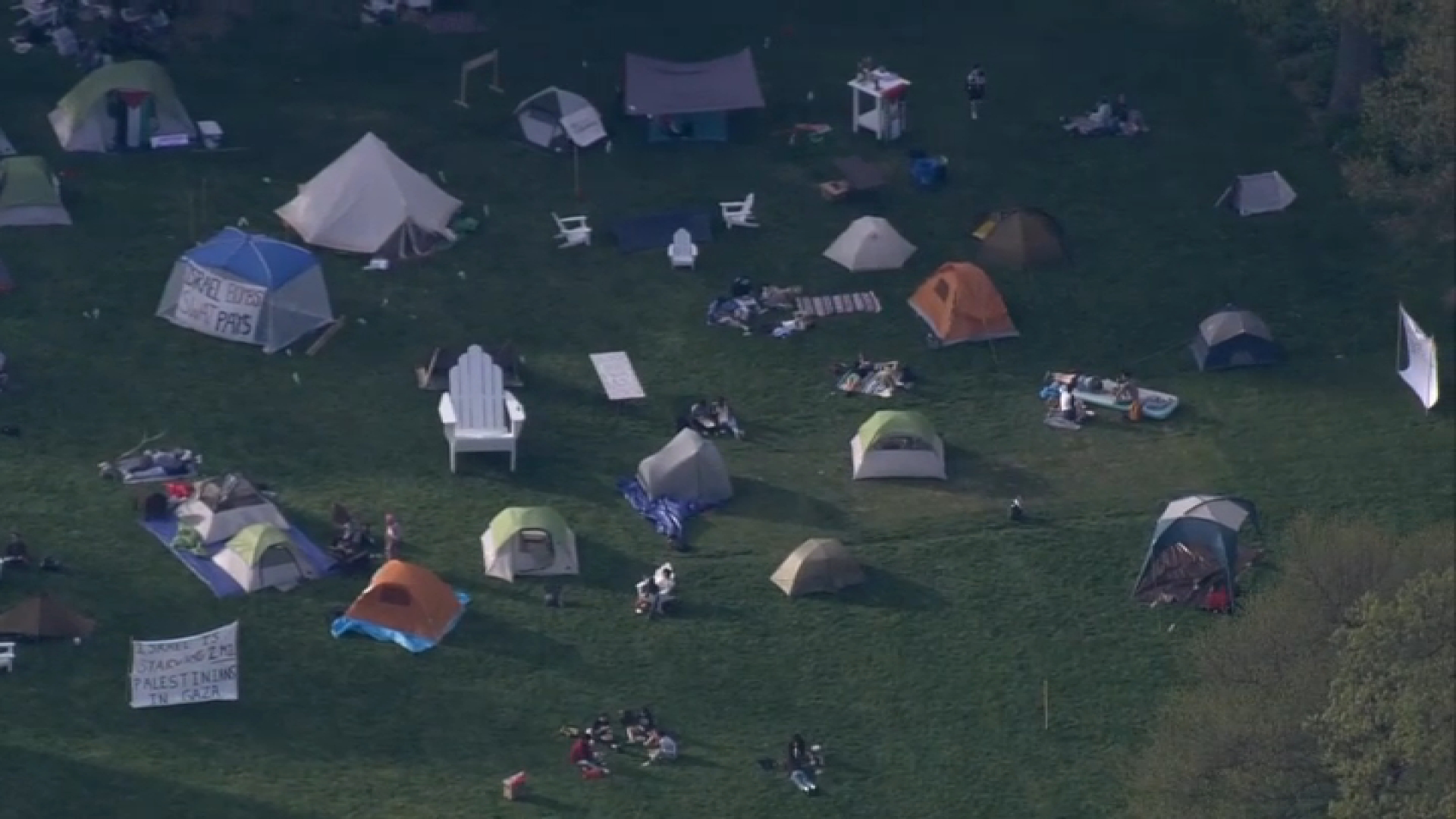Fainting at the sight of a needle or blood is so common that Sharon Burke, a registered emergency nurse at Thomas Jefferson University Hospital, has a rule for family members who want to stay in the room when she starts an IV line.
"If they refuse to sit down, we won't stick the patient," Burke said. "It's not a policy, it's kind of the street rule."
Feeling faint or woozy at the sight of blood or a needle is a common reflex, initially triggered by the same "fight or flight" response that kicks in when people feel threatened or surprised.
"Initially their adrenaline spikes. All of a sudden they get a little bit jittery, their eyes get wider, they become hyper aware of things," said Dr. Dan Frisch, a cardiologist at Thomas Jefferson University Hospital who specializes in arrhythmias.
This fight or flight response is your sympathetic nervous system kicking into gear.
"The classic example would be the tiger chasing you," Frisch said. "Perhaps if you're a cave man, that'll get your blood pressure up, that'll get your heart rate going, and you'll run pretty fast and be hyperaware of your surroundings."
Local
Breaking news and the stories that matter to your neighborhood.
After the threat has passed, the opposite system, the parasympathetic nervous system, is designed to take over to calm the body down by lowering blood pressure and heart rate. This opposite reaction to the "fight or flight" reaction is commonly called the "rest and digest" response.
"Say you've captured that tiger and made it into a meal, at the conclusion of your meal, that feeling of being a little bit sedated or drowsy, that's mediated more by the parasympathetic nervous system," Frisch said.
These two systems are meant to balance each other out. But in people who feel woozy or faint when they see blood, a needle, or another surprising or upsetting trigger, the parasympathetic response overpowers the initial fight or flight response. Blood pressure and heart rate quickly drop too low and not enough oxygen is delivered to the brain so it starts to shut down. If you have stayed vertical during the initial feelings of wooziness, clammy skin and nausea, you'll faint.
Unique human physiology leads to a uniquely human problem
This parasympathetic nervous system reaction is called the "vasovagal response" because it triggers a large, wandering nerve called the vagus nerve. Similar responses occur in animals too, but they don't have the same fainting problem as humans.
The difference can be blamed on our ongoing battle with gravity, said Dr. Behzad Pavri, another Thomas Jefferson University cardiologist and the author of a book on fainting. As bipedal creatures, our heads are far above our hearts. It takes a lot of work to pump blood against gravity to keep our brains filled with oxygen, which predisposes us to fainting.
But that fight with gravity is just part of the story.
"If you're talking head being above the heart, think of the giraffe," Pavri said. "It ought to be fainting all the time, but it doesn't. This is a problem that is unique to the human species."
It is a unique problem because of our unique physiology. Pavri lists three reasons why:
1) Our enormous brains
"We have to push one-fifth of our cardiac output up to our big, oxygen requiring brain," much larger than our relative, the chimpanzee, Pavri said.
2) Our powerful lower extremities
Our legs, which can carry us on marathons and ultramarathons, can hold a lot of blood. When blood vessels all over the body dilate in the parasympathetic system's "rest and digest" response, blood can pool in the legs and remain there instead of circulating back to the heart.
3) We can lock our knees
This prevents blood from being pumped back up to our hearts.
Fainting was likely a good thing for our ancestors
Because this fainting reaction has endured through hundreds of thousands of years of human evolution, doctors believe it must have been beneficial in some way.
One idea why, said Pavri, is that fainting allows us to play dead very effectively in the face of a predator.
"When [someone faints], they look like they died, they drain of blood from their face, they become completely pale, they are limp and unconscious on the floor, immobile," Pavri said. "You can imagine how an aggressor may think the person is dead and walk away."
Many animals play dead, but the theory goes that because our human adversaries were so much smarter than other animals, actually being unconscious helped to eliminate any telltale movement that an adversary may notice as signs of life.
Other research suggests that fainting could protect the heart during stressful situations.
Finally, plummeting heart rate and blood pressure could help stop the bleeding from a big cut.
"This reflex kicks in at the sight of blood or with pain [and] I faint, but while my blood pressure's low it gives the bleeding limb a chance to clot," Pavri said.
Why we often have this reaction when we see others bleeding or getting stuck with a needle is still an open question.
It could just be that a needle is a needle, no matter where it is aimed.
Or, it could be a sign of a kind of unconscious empathy preprogrammed into all of us humans.
"There's just something about observing physical symptoms in others that seems to kind of put us in touch with that kind of sensation in ourselves," said Blaine Ditto, a McGill University psychology professor who has studied how much a fear of blood predisposes donors to passing out.
How to prevent fainting at the sight of blood
Turning away or sitting down when you or someone you know gets a shot is perhaps the easiest way to avoid fainting. Repeated exposure will often lessen symptoms.
When that doesn't work, try a technique called "applied tension": squeeze the muscles in your arms, legs and torso before seeing something that is likely to make you woozy. This raises your blood pressure before exposure and can help prevent you from getting woozy.



